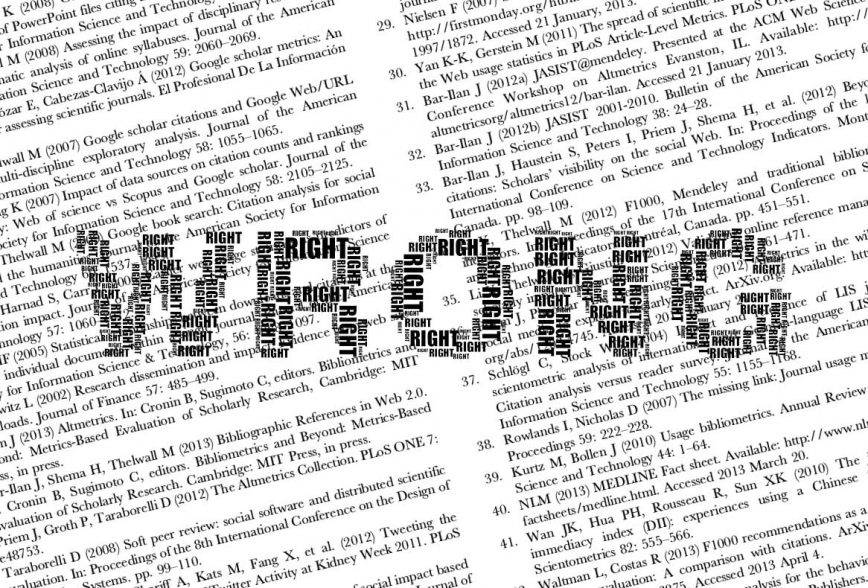If you are writing a research paper for a class in college or a well thought out article for publication, providing citations that back up your thoughts goes a long way. It is all part of the scholarly writing process. Without proper citations, people may believe that you are pulling facts and quotes out of midair. To put it simply, they won’t take you or your writing seriously.
The truth is that even if an individual includes citations, there is a chance they are doing it wrong. Adding citations correctly can be a bit tricky. Plus, depending on the format that you are using, such as APA, MLA, or Chicago, it can easy to get confused. Below is a list of some of the most common citation mistakes a person may make in their writing. By knowing what citation errors to avoid, you are preparing yourself to become a better writer down the road.
1. Not Knowing the Difference Between Citations and References (If There Is Any)
This can be puzzling for even the best authors. And there is not an easy answer for this. Citations are generally included in the actual body of the paper with direct quotes or something related to the author or publication that you received the information from. References are generally thought of as being at the end of the paper. Any citation you use in the body should be represented by an entry in the reference list. However, with that said, if you are writing in MLA format, the end of the paper is called “Works Cited” instead of “References” which is often used at the end of the APA writing style used to cite sources.
2. Forgetting Page Numbers
When citing specific information for a book or long article, it is best to use the page number that you gathered the information from. While there is a very small chance that someone will want to dig up the information from the exact page that you have listed, it is always a good idea to cover your bases.
3. Leaving Out Citations Completely
If you are lucky enough, maybe your high school teacher will not require citations in your writing. However, they are actually doing you a disservice because by the time you arrive for your first college course, you better realize how to use them at least semi-accurately. If you just choose to leave out citations and use broad terms like “One study showed that…” without having anything to back it up with, your writing is not going to be taken seriously.
4. Using Old Information
When writing about something to do with the medical field or some similar arena, try to use the most up to date information possible to back up your thinking. What may have been true 50 years ago may not be thought of as correct today. For example, in the past when doctors were removing tonsils, they would use a device called a tonsil guillotine, literally chopping off the tonsil. This resulted in many people bleeding out. Nowadays, they are much more likely to do a tonsillectomy in a different way.
5. Missing Punctuation
When you first start writing down citations, it can be a mystery when trying to figure out why there is to be a comma or a period in a certain place. It may seem like there is no rhyme or reason to it. However, there are those that will look at your citations and immediately notice where you have made mistakes in your formatting. Usually these people are professors that will be giving you a grade on your work. It is always a good idea to have a couple of examples of correct punctuation in citations before you start writing out your own.
6. Not Keeping Citations in Alphabetical Order
Citations need to be correctly alphabetized. If there are a few authors for a particular publication, you must put them in alphabetical order by their last names. Think of it like lining up for your classroom in grade school. Alphabetical order by the last name was always required. The citations in the paper should be alphabetized as well as the references list at the bottom of the paper. This way it will be much simpler to find the corresponding information.
7. Mangling Spelling
Although there are certain names that are difficult to spell, that does not give you the right to jumble up the spelling. Learn how to spell the names correctly and keep it the same throughout the whole paper. If you aren’t positive on the spelling, then by completing a little bit of research online you should be able to get a very good idea on just how to put the letters together correctly.
8. Not Citing Paraphrased Words
If you are taking someone else’s words and paraphrasing them into your own, you are still required to provide a citation. This is the case because you are still using information from another person’s work, so that information still needs to be referenced and cited accordingly. By including citations in this type of situation it can help you avoid accusations of plagiarism. Plagiarism is the last thing you want to be accused of in any paper you write.
9. Including Unnecessary Citations
In a few of your classes, you may run into a professor that asks for a minimum amount of citations. But don’t just start throwing in citations when you don’t need them. Something else to keep in mind, instead of putting the same citation after each sentence in a paragraph, just place it at the end of the whole paragraph instead. A single citation at the end of the paragraph can be used in place of including one at the end of each sentence.
10. Forgetting Web Addresses
The invention of the internet changed the world of education instantly. There is so much information online that you could start reading now and never get through even a quarter of it before you die. Furthermore, it keeps growing by the second. More and more is added constantly. Research is often completed now directly online because of this. Don’t leave off any websites that you have gained information from. Provide the needed links to ensure you are giving out credit where credit is due.
 Start citing
Start citing
